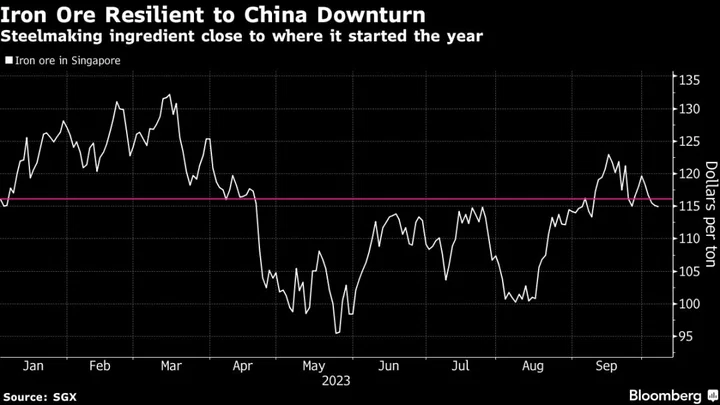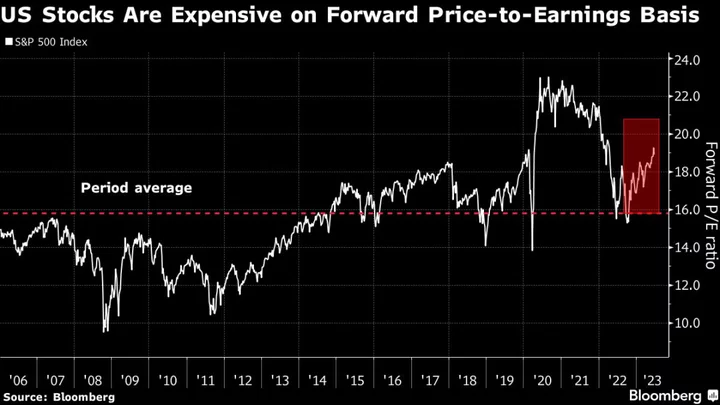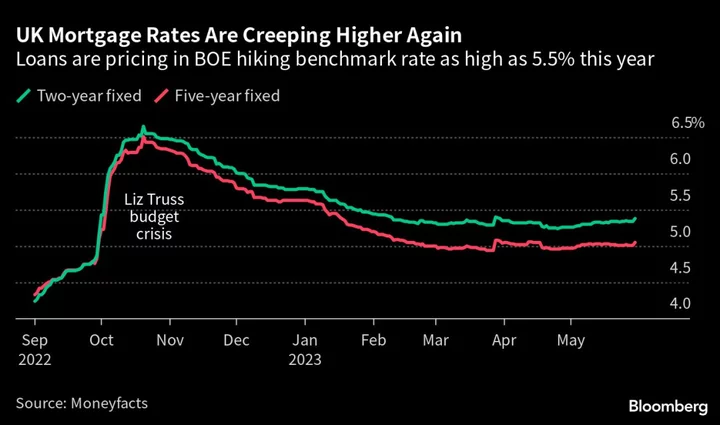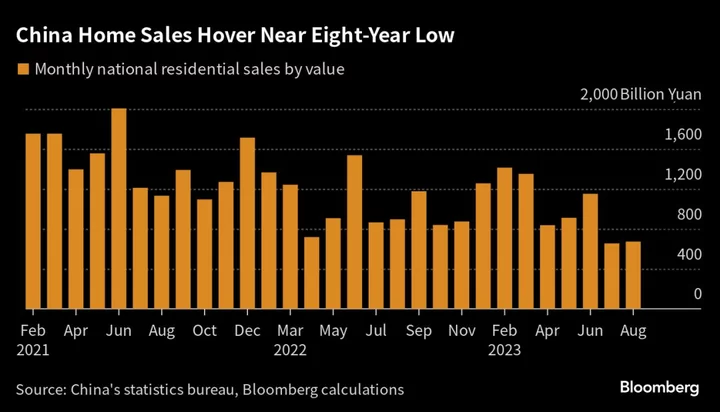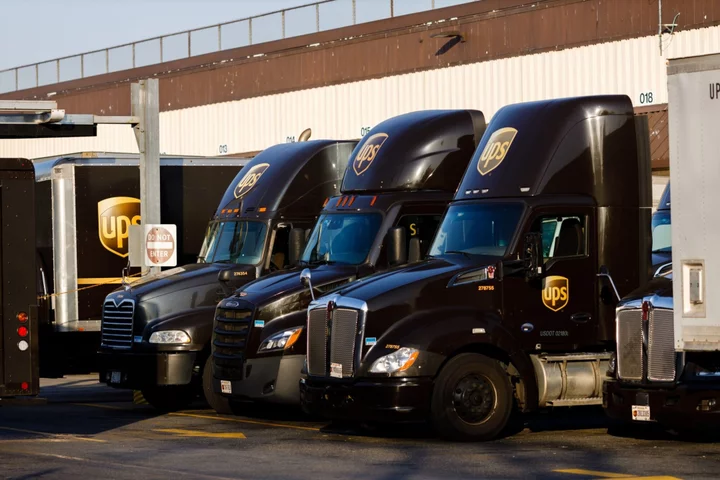China Mineral Resources Group Co., the buying agency set up to increase Beijing’s clout in iron ore, is in negotiations with Rio Tinto Group and other leading miners over next year’s supply, according to people familiar with the matter.
In the talks with the world’s four largest suppliers — which also include BHP Group Ltd., Vale SA and Fortescue Metals Group Ltd. — the group is seeking preferential terms on transport, grades and delivery arrangements, the people said. They asked not to be named as the conversations are not public.
China imports three-quarters of the world’s iron ore to feed its mammoth steel industry, and has long sought to improve its bargaining position, with even more urgency now given mills are under financial pressure. Beijing established CMRG in July last year, unsettling the mining industry.
After a slow start, several large mills — including China Baowu Steel Group Co. and Ansteel Group Co. — have now handed over negotiations around their long-term supply contracts with the big four miners, according to the people. That dramatically increased CMRG’s bargaining power over the past months, even if the mills are still responsible for spot-market procurement.
CMRG also represents some small- and medium-sized steel producers on part of their purchases, the people said.
It’s unclear that Beijing’s gambit would rapidly up-end existing pricing structures, but it could be the biggest shake-up of the $160 billion iron ore trade since the advent of the spot market a little over a decade ago, ultimately threatening a key source of revenue for mining industry giants.
China Baowu, Ansteel and Beijing’s State-Owned Assets Supervision and Administration Committee, which oversees central government SOEs including CMRG, didn’t immediately comment on the matter during a week-long holiday period in China.
A Fortescue spokesperson said the company was unable to comment on confidential discussions, but was continuing to engage with CMRG. BHP and Rio declined to comment on the negotiations, while Vale said it couldn’t immediately comment.
Resource security is not a new concern for Beijing, but it has become an even more pressing priority for authorities at a time of rising geopolitical tension and in the context of the global supply chain disruptions of recent years. That has added urgency to the need to resolve what officials see as the unequal balance between major miners and China’s 500 or so steel mills.
China’s steel industry, the world’s largest, has been struggling with a downturn in demand due to a years-long property crisis and a disappointing post-virus economic recovery. Despite that, iron ore prices have been stubbornly resilient. Benchmark prices in Singapore rose almost 10% last quarter to trade at about $115 a ton, only slightly lower than where they started the year.
Read More: China Wants to Rewire Its Billion-Ton Iron Ore Trade: QuickTake
Prior to 2010, iron ore prices were fixed for a whole year in annual talks led by the biggest miners and steelmakers in Europe and Asia. But the rapid expansion of Chinese demand in the early 2000s spurred the creation of a separate spot market that was often out of whack with annual prices. Annual negotiations became increasingly fraught, and BHP eventually spearheaded the move to floating prices that’s been in place since then.
The pricing of large procurement deals is currently based on spot benchmark indexes. That structure will be difficult to change, limiting CMRG’s ultimate impact on price — though it can more easily influence other conditions.
As part of China’s long-running efforts in commodities markets, CMRG is also hoping to see more supplies to be priced in yuan instead of dollars, but it’s challenging due to the complexity in hedging and arbitrage trades, said the people.
CMRG’s negotiations have been complicated by mills’ existing, individual long-term contracts with miners, the people said. The buying group is now attempting to harmonize the different contracts.

